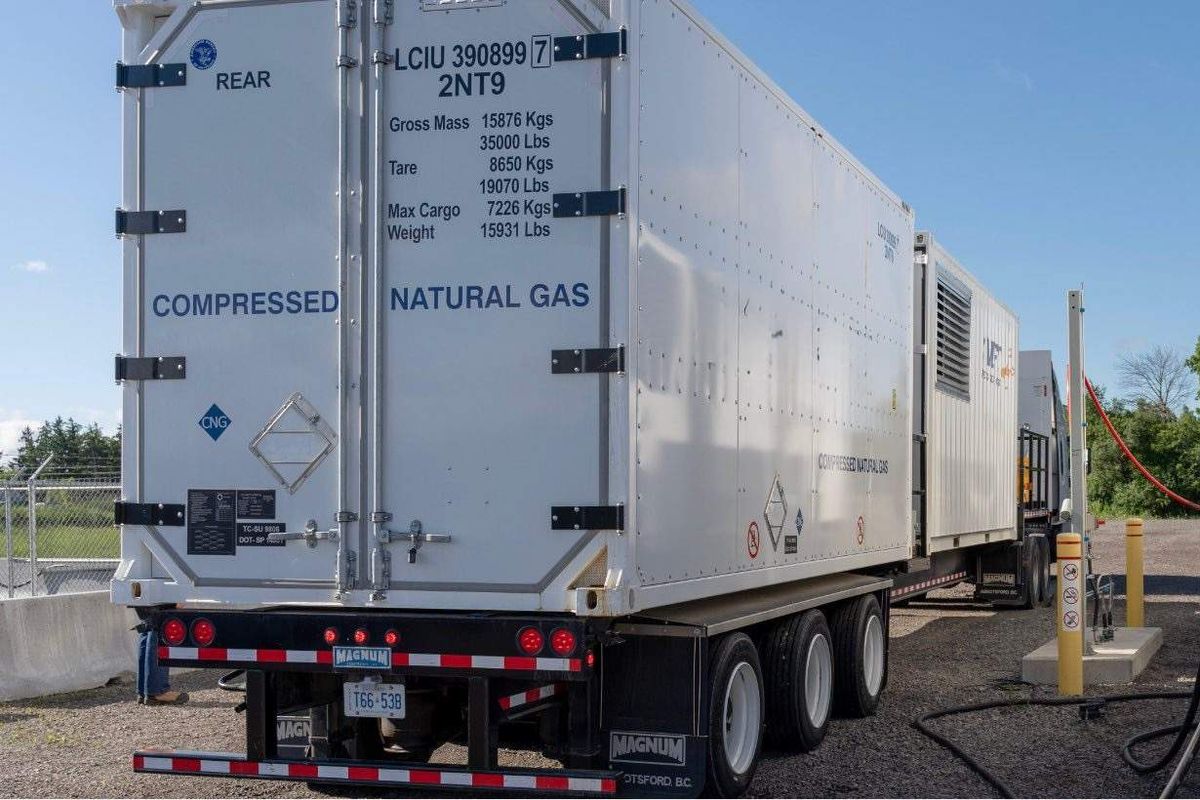Houston renewable fuel co. expands and more energy transition news to know
Trending Topics
Editor's note: The biggest energy transition news in recent weeks includes a major acquisition, big funding, a new biomaterial from Houston researchers, and more. Below are the five most-read stories from EnergyCaptialHTX from July 15-31, 2025:
1. Houston renewable fuel company expands reach with latest acquisition

Freedom CNG is growing. Photo courtesy Freedom CNG
Houston-based Freedom CNG, a provider and distributor of compressed renewable natural gas, has acquired ComTech Energy, a Canada-based provider of on-site mobile refueling for compressed renewable natural gas. The purchase price wasn’t disclosed. The acquisition allows Freedom CNG to adopt a hub-and-spoke operational model, allowing customers to move away from fixed fueling infrastructure with low-carbon energy solutions across North America. Continue reading.
2. Houston researchers develop strong biomaterial that could replace plastic

A team led by M.A.S.R. Saadi and Muhammad Maksud Rahman has developed a biomaterial that they hope could be used for the “next disposable water bottle." Photo courtesy Rice University.
Collaborators from two Houston universities are leading the way in engineering a biomaterial into a scalable, multifunctional material that could potentially replace plastic. The team introduced a biosynthesis technique that aligns bacterial cellulose fibers in real-time, which resulted in robust biopolymer sheets with “exceptional mechanical properties.” Continue reading.
3. Houston energy tech platform Molecule closes series B funding

Molecule has closed its latest investment round. Photo via Getty Images
Houston-based energy trading risk management (ETRM) software company Molecule has completed a successful series B round for an undisclosed amount. The raise was led by Sundance Growth, a California-based software growth equity firm, and Molecule founder Sameer Soleja said the funding will allow the company to "double down on product innovation, grow our team, and reach even more markets." Continue reading.
4. 7 Houston energy-focused businesses among Time's best midsize companies 2025
 7 Houston energy-focused businesses among Time's best midsize companies 2025
7 Houston energy-focused businesses among Time's best midsize companies 2025CenterPoint is one of 13 Houston companies on Time's list. Photo via centerpoint.com
Seven Houston-based businesses focused on the energy industry appear on Time magazine and Statista’s new ranking of the country’s best midsize companies. Time and Statista ranked companies based on employee satisfaction, revenue growth, and transparency about sustainability. All 500 companies on the list have annual revenue from $100 million to $10 billion. Continue reading.
5. TEX-E names Houston VC leader as new executive director

TEX-E, a Houston-based energy transition nonprofit, has named Sandy Guitar as its executive director. Photo courtesy TEX-E.
The Texas Exchange for Energy & Climate Entrepreneurship (TEX-E) has named Houston venture capital and innovation leader Sandy Guitar as its new executive director. Guitar previously served as general partner and managing director at Houston-based VC firm HX Venture Fund and is co-founder of Weathergage Capital. She also sits on the advisory board of Rice University's Liu Idea Lab for Innovation and Entrepreneurship (Lilie) and launched the Women Investing in VC in Houston group. Continue reading.





